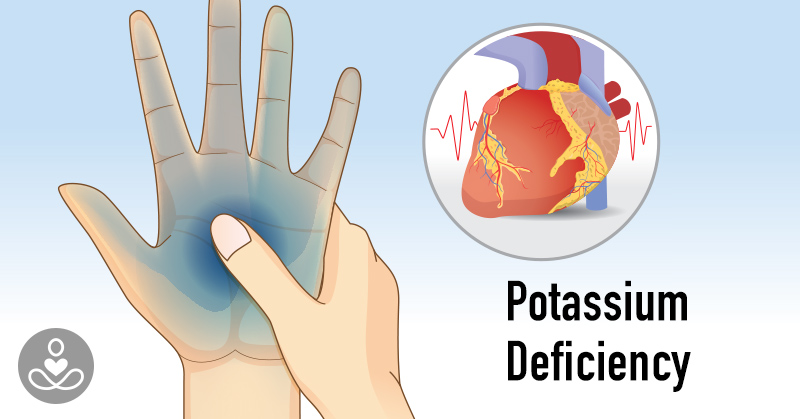Potassium is an essential mineral and electrolyte that plays a vital role in maintaining optimal health. It is necessary for the proper functioning of various bodily systems, including nerve and muscle function, cardiovascular health, and maintaining the body’s fluid balance. While many people are aware of the importance of other vitamins and minerals, potassium is often overlooked. Let’s explore what potassium is, why it is important, the problems that potassium deficiency can cause, and the signs that your body isn’t getting enough potassium.
What is potassium and why is it important?
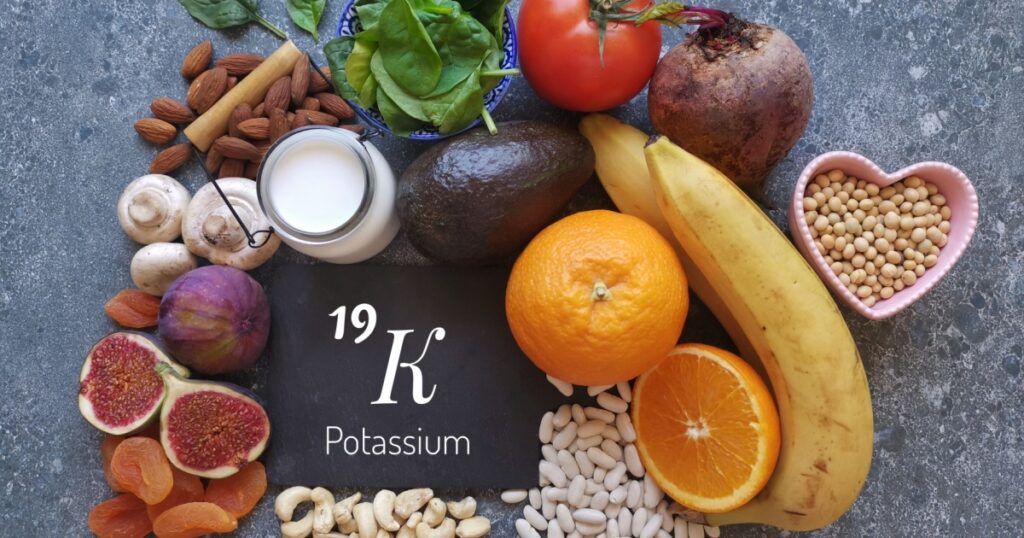
Potassium is a mineral that is naturally present in many foods we consume, such as fruits, vegetables, dairy products, and meats. It is vital for maintaining the electrical potential of cells, allowing them to communicate and function properly. Potassium also works alongside sodium to maintain the body’s fluid balance and regulate blood pressure. Additionally, it aids in the proper functioning of the heart, muscles, and nerves. (1)
Read More: Signs of Fatty Liver Disease That Show Up in Your Face
Problems that potassium deficiency can cause
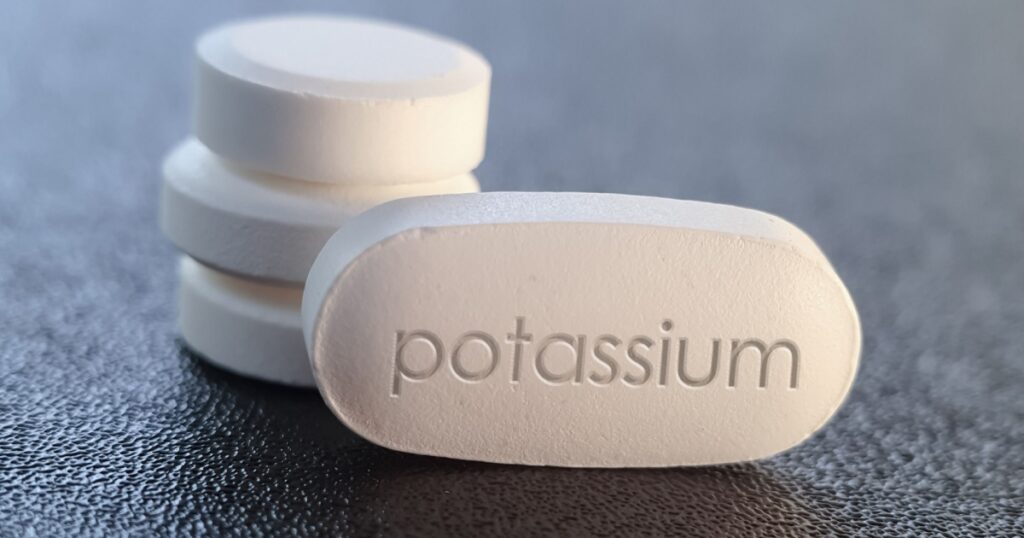
When the body doesn’t receive an adequate amount of potassium, a condition known as hypokalemia can occur. Hypokalemia can lead to an array of health problems and negatively impact various bodily functions. Some of the problems associated with potassium deficiency include muscle weakness, fatigue, irregular heartbeat, high blood pressure, kidney stones, and an increased risk of stroke.
8 signs of low potassium
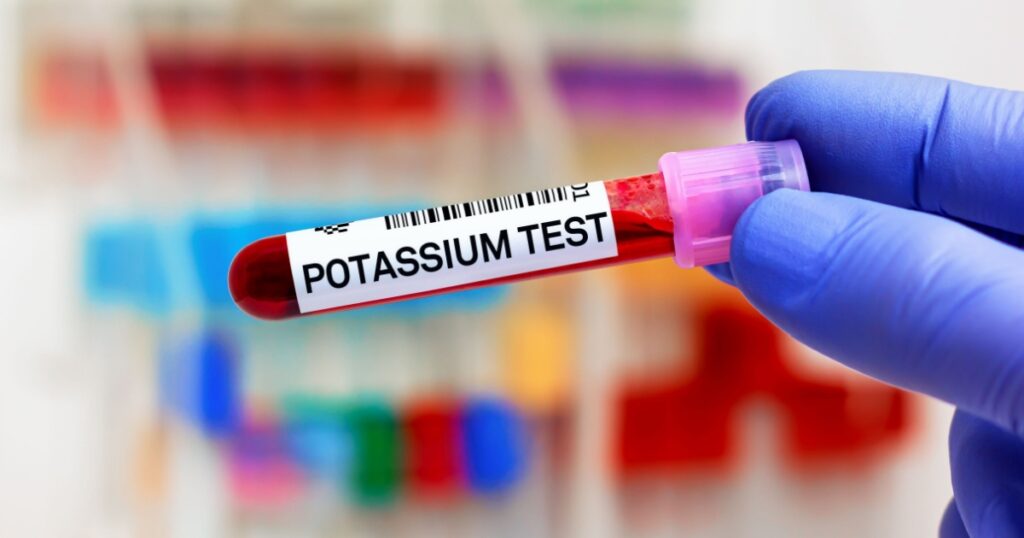
As always, it’s best to catch a nutrient deficiency before it becomes serious. Sometimes, however, the signs can be quite subtle and hard to identify. These are eight of the most common signs of low potassium in the body:
1. Muscle Weakness
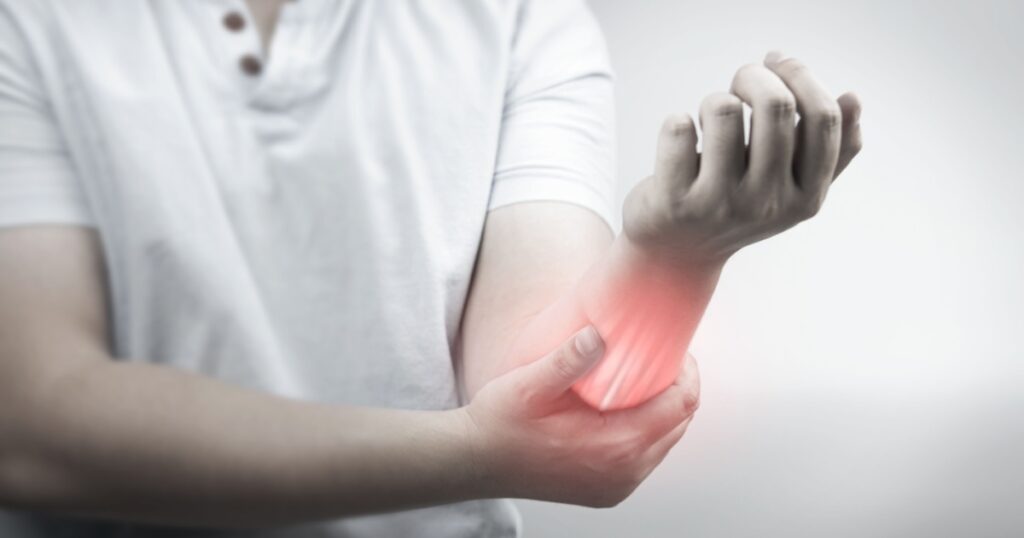
Potassium deficiency can cause muscle weakness and fatigue. This can manifest as difficulty lifting objects, climbing stairs, or participating in physical activities that were once manageable. (2)
2. Fatigue

Low potassium levels can lead to increased feelings of tiredness and lethargy, even after obtaining enough sleep. This can hinder productivity and overall quality of life.
3. Irregular Heartbeat
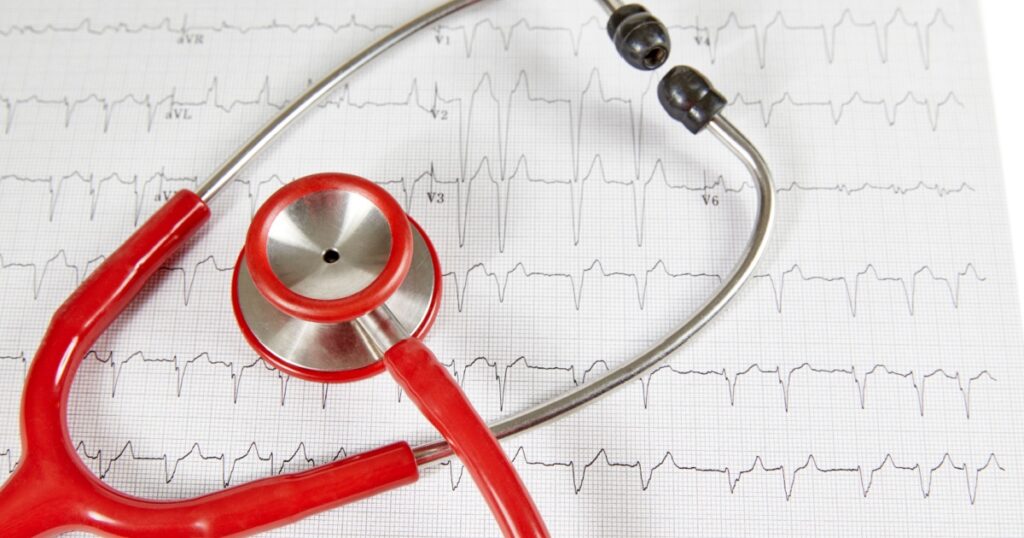
Potassium is crucial for maintaining a healthy heart rhythm by regulating electrical impulses. A deficiency in potassium can cause palpitations, arrhythmias, and an irregular heartbeat. (3)
Read More: Turmeric for arthritis, how well does it work?
4. High Blood Pressure
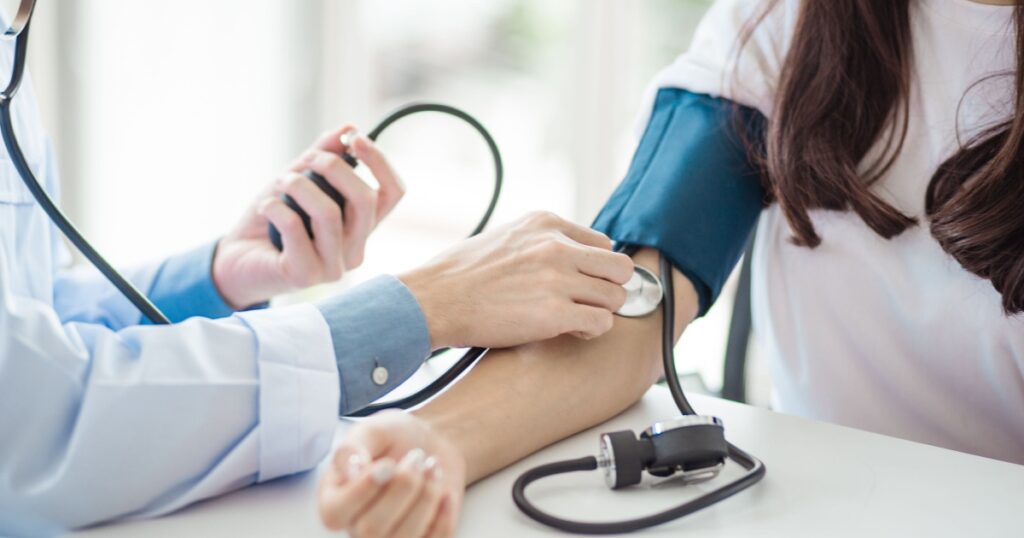
Potassium works in conjunction with sodium to regulate blood pressure. When potassium levels are low, blood vessels may constrict, resulting in elevated blood pressure levels.
5. Cramps and Spasms

A lack of potassium can cause muscle cramps, twitches, and spasms. These involuntary contractions commonly affect the legs, arms, and abdomen.
6. Digestive Issues

Low potassium levels can result in digestive disturbances such as constipation, bloating, and abdominal cramping.
7. Mood Changes

Potassium plays a role in regulating neurotransmitter activity. A deficiency can negatively affect mood and mental health, leading to irritability, anxiety, and even depression.
Read More: 8 Benefits of Astragalus According to Scientific Studies
8. Increased Risk of Osteoporosis

Potassium contributes to maintaining healthy bones by reducing calcium loss through urine. Low potassium levels can lead to higher calcium excretion, potentially increasing the risk of osteoporosis.
How to increase your potassium intake and foods high in potassium
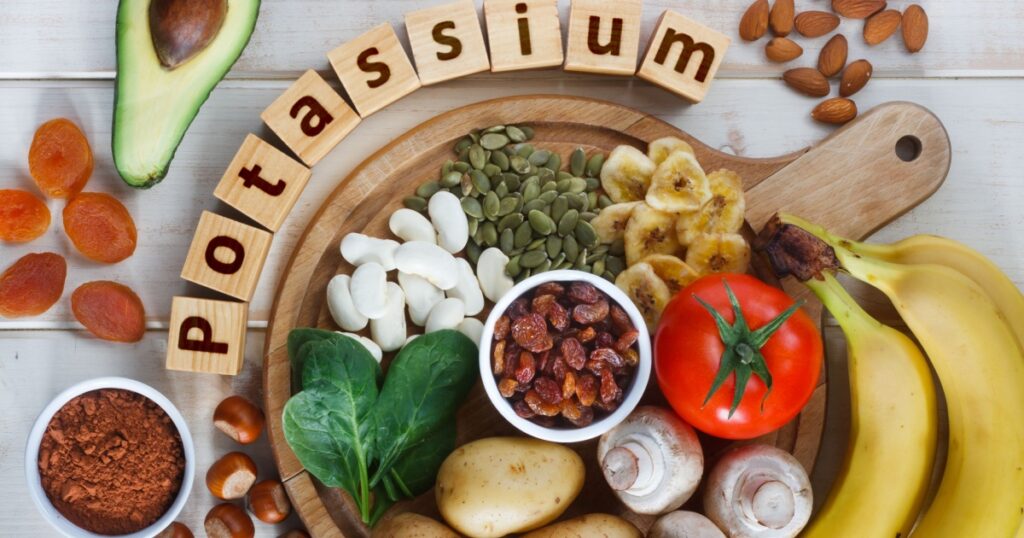
There are numerous ways to increase your potassium needs, including supplementation. Thankfully, though, there are plenty of foods that can do that, no pills necessary. Increasing the intake of potassium-rich foods is an effective way to ensure you are meeting your daily requirements. It is essential to maintain a balanced diet and consume a variety of these potassium-rich foods to ensure an adequate intake. If you are still struggling, speak with a registered dietitian or your health care provider.
Some foods high in potassium include:
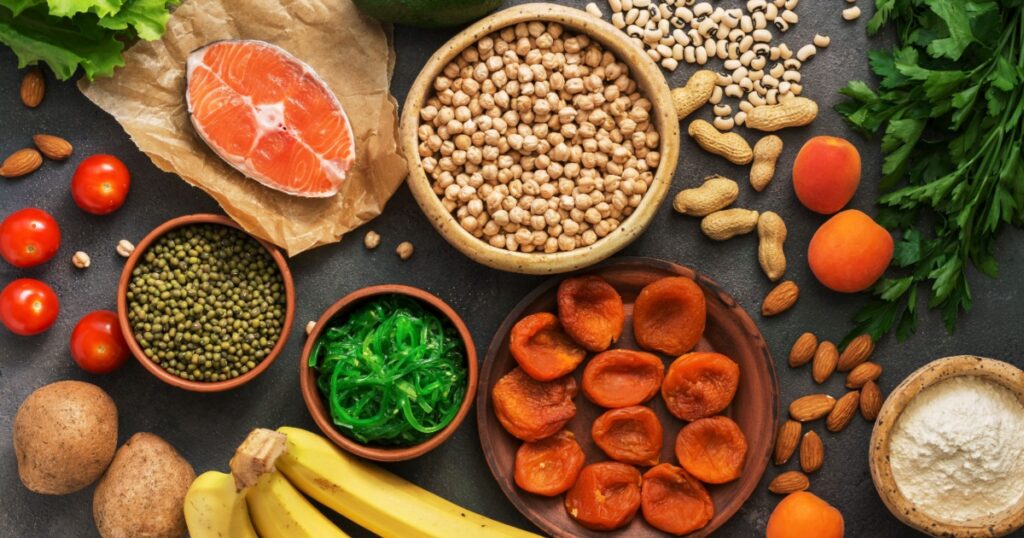
- Bananas
- Oranges
- Avocados
- sweet potatoes
- Spinach
- Tomatoes
- Salmon
- Yogurt
- Beans
- lentils.
The Bottom Line
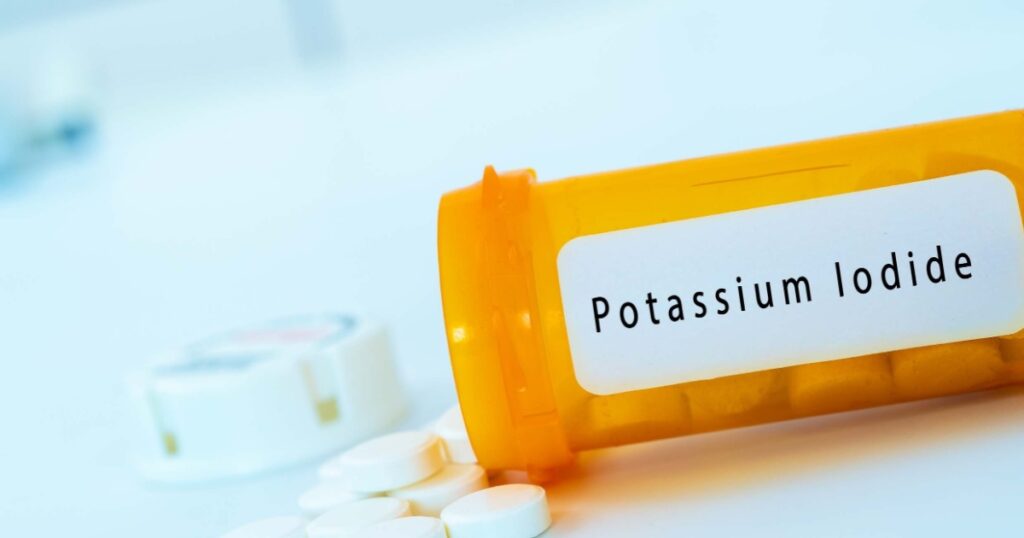
Potassium is a crucial nutrient that is often overlooked but plays a vital role in maintaining overall health and well-being. Recognizing the signs that your body isn’t getting enough potassium can help you take appropriate measures to correct the deficiency. By incorporating potassium-rich foods into your diet and maintaining a healthy lifestyle, you can ensure that your body receives the necessary amount of this essential mineral.
Read More: 11 Signs You’re Not Getting Enough Magnesium and 20 Foods to Fix It
